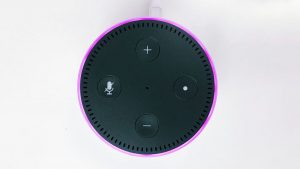What the Biden-Xi Talks Accomplished (and Didn’t)

Too close to call
The fate of the United Automobile Workers union’s tentative contract with General Motors, won after a hard-fought strike, now looks uncertain. Workers at the automaker have unexpectedly pushed back against the terms, prolonging the drama around the Detroit auto industry.
The final tally on the contract could be a squeaker, with results expected as soon as Thursday. Veteran G.M. workers have opposed the deal, which would raise the top wage by 25 percent, to more than $40 per hour over the next four and a half years, as well as offer cost-of-living adjustments and more generous pension and retirement plans.
A majority of workers at several G.M. plants in Michigan, Indiana and Tennessee rejected the proposal, while those at a large sport utility vehicle plant in Arlington, Texas, voted yes. (A simple majority is needed for ratification.)
One G.M. worker told The Times that he rejected the agreement because it didn’t include retiree health benefits. “I’m not voting yes on any contract that doesn’t have that in it because I don’t need the health care when I’m 25 — I’m 65,” he said.
Workers at Ford and Stellantis seem set to approve the deal. That appears to validate the U.A.W.’s decision to strike at all three automakers this fall to exert more pressure, creating a work stoppage that cost the companies billions of dollars.
That hardball strategy, coupled with similarly tough moves by unions of Hollywood screenwriters and actors, helped workers in both industries achieve some of their biggest wage gains and benefits increases in decades.
But those concessions won’t matter if union members won’t accept them. That could create issues for the U.A.W. as well as G.M. Shawn Fain, the union’s president, has hoped to build on the victory by seeking to organize workers at nonunionized automakers like Tesla and Toyota.
The White House could also suffer blowback. President Biden has embraced a pro-union stance as part of his 2024 re-election campaign, including by taking the extraordinary step of joining its picket line in September. Last week, he joined Fain at a Stellantis factory in Illinois, where — wearing a U.A.W. T-shirt — he lauded the union’s gains.
But his position could become thorny if G.M. workers reject their union’s deal. And any disruption that arises from new labor tension could compound voters’ concerns about his handling of the economy.
Musk takes heat for comments about hate speech, again
As corporate America rushes to stand up against antisemitism amid the Israel-Hamas war, Elon Musk is taking a different tack.
The billionaire on Wednesday reignited concerns about his efforts to combat antisemitism with a series of replies to posts on X, the social network he owns, criticizing the Anti-Defamation League, a Jewish advocacy group, and seemingly endorsing a claim that some Jewish communities are pushing hate speech.
“You have said the truth,” Musk wrote in a reply to an X post that said Jewish communities “have been pushing the exact kind of dialectical hatred against whites that they claim to want people to stop using against them.” (The author of the original post has since limited who can see it.)
Musk added, without citing evidence, that the A.D.L. “unjustly attacks the majority of the West, despite the majority of the West supporting the Jewish people and Israel.” He later said that not all Jewish communities promote hate, but reiterated that the A.D.L. and similar groups are pushing “de facto anti-white racism or anti-Asian racism or racism of any kind.”
The A.D.L., which did not appear to respond to Musk’s latest charge, on Wednesday called out the “record levels” of hate speech generated in online forums and social media.
It’s the latest instance of Musk taking aim at the A.D.L., which is one of several groups cataloging hate speech on X. The social network has faced criticism over a surge in racist, antisemitic and other harmful content since Musk took over last year, charges that the tech mogul has strongly disputed. “The @ADL has been trying to kill this platform by falsely accusing it & me of being anti-Semitic,” he wrote in September. He later threatened to sue the organization for hurting X’s revenue; the two sides later backed down.
The controversy is unlikely to help X’s already embattled business, which many advertisers had abandoned after upheaval at the company and a weakening of its content moderation teams and policies. Last month, X disclosed that it now valued itself at $19 billion, a fraction of the $44 billion that Musk paid for the company.
THE SPEED READ
Deals
-
EY named Janet Truncale as its next global C.E.O., making her the first woman to lead a Big Four accounting firm. (FT)
-
Documents reportedly show that 777 Partners, an obscure Miami-based investment firm, used $1.5 billion of cash from customers of an insurer it controls to bid for European soccer teams and other risky assets. (Semafor)
-
Mars agreed to buy Hotel Chocolat, a high-end British chocolatier, for $662 million. Relatedly, the news release inadvertently disclosed the deal’s code names. (BBC, FT Alphaville)
-
Gawker, the twice-shuttered internet gossip site, has been sold again, this time to a Singaporean music entrepreneur. (Variety)
Policy
-
Letitia James, New York’s attorney general, sued PepsiCo, accusing it of endangering wildlife and misleading the public about its goals to eliminate single-use plastic in its packaging. (NYT)
-
“How R.F.K. Jr. Has Turned His Public Crusades Into a Private Windfall” (NYT)
-
Short sellers like Carson Block and Nate Anderson are sharing their research into potentially shady situations with the S.E.C. — in hopes of getting paid for their tips. (Bloomberg)
Artificial intelligence
Best of the rest
We’d like your feedback! Please email thoughts and suggestions to dealbook@nytimes.com.





